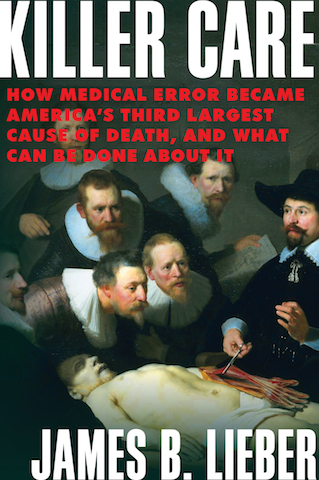Journal of the American Medical Association (JAMA)
See the following -
EHRs Can’t Keep Up with Healthcare Analytics Abilities, Needs
The electronic health record simply isn’t evolving quickly enough to keep up with rapid innovations in healthcare big data analytics and the increasingly complex needs of end-users, says an editorial published in the Journal of the American Medical Association (JAMA) this week. The opinion piece, authored by a trio of physicians and researchers from Stanford University, points out that existing clinical decision support features often border on the useless due to an overwhelming number of low-priority alarms and alerts, inadequate data visualizations, and an inability to capture socioeconomic and behavioral data within the clinical workflow...
- Login to post comments
Accountable Care: IT Gets Us Only Halfway There
It's hard to imagine a successful accountable care organization (ACO) that doesn't rely heavily on IT...But the very foundation upon which ACOs are built could be shaky, making software tools only so effective. Let me explain. Read More »
- Login to post comments
Bad EHR Design and Physician Dissatisfaction: It’s a Matter of Wasted Time.
As reported last year at HIMSS and by many online news and opinion sources since, physician dissatisfaction with EHRs is growing. Indeed, while this blog post doesn’t focus on the broader picture, general physician career dissatisfaction is disconcertingly high. The breakneck push for more and better EHR use as a component of regular medical care is a significant part of that malaise, but it is insufficient as an explanation. Read More »
Beth Israel Launches Pilot That Lets Patients Read Therapists’ Notes
Boston’s Beth Israel Deaconess Medical Center has launched a pilot in which 700 mental health patients receive access to their therapists’ notes on their laptop or smartphone, according to a must-read report in the New York Times...
- Login to post comments
Big Pharma Plays Hide-The-Ball With Data
...[E]vidence released earlier this year by Cochrane Collaboration, a London-based nonprofit, shows that a significant amount of negative data from [Tamiflu's] clinical trials were hidden from the public. The Food and Drug Administration (FDA) knew about it, but the medical community did not; the U.S. Centers for Disease Control and Prevention (CDC), which doesn’t have the same access to unpublished data as regulators, had recommended the drug without being able to see the full picture...
- Login to post comments
Browse Your Library’s e-Journals On Your Device With BrowZine
Review of BrowZine for iPhone, iPad, and Android...
- Login to post comments
Chuck Lauer: An IT Boondoggle?
A recent Wall Street Journal article left me speechless. Like a lot of other people in healthcare I have been indoctrinated with the belief that unless the industry fully and enthusiastically adopts information technology, hospital and health systems will never run efficiently and be able to deliver quality healthcare to patients... Read More »
- Login to post comments
EHRs Cause Physicians To Lose 48 Minutes Per Day, Survey Says
As a physician, free time is a scarce enough commodity without having to factor in convoluted EHR workflows and frozen computers, but a large number of providers surveyed by the American College of Physicians (ACP) are still reporting significant productivity losses due to their EHR technology...
- Login to post comments
Google Proved That AI Can Reshape Medicine
A doctor’s work isn’t all done in examination rooms. Many specialists spend lots of time alone with the lights out, examining photographs that reveal their patients’ internal workings. That might soon change. A paper by Google published in the Journal of the American Medical Association details an algorithm that can detect when someone has developed blindness as a result of diabetes, trained and tested by board-certified ophthalmologists. It shows algorithms can, at least in the case of this particular affliction, make a diagnosis with an accuracy on-par with medical professionals...
- Login to post comments
Health IT tools lack proof of effectiveness
There are myriad apps, tools and technologies entering the healthcare marketplace--but most lack proof that they are helping consumers battle disease and stay healthy, according to an article in Fortune. To that end, hospitals must be very careful when adopting health IT, according to Richard Milani, chief clinical transformation officer at Ochsner Health System. "You want to be comfortable that the technology you're utilizing is reliable and accurate," Milani tells Fortune. "That's a genuine concern. If you have some scientific data or peer-reviewed data to back it up, that certainly makes it a little easier."
- Login to post comments
Healthcare Has Cost Problems, but IT and EHRs Do Not Have to be One of Them
 I’m proud to lead a group of intelligent and energetic technology professionals committed to developing a robust healthcare IT system that is (1) easy for clinicians to use, (2) improves patient health and (3) doesn’t bankrupt hospital budgets. We think any sustainable system must have those three key requirements. And how is healthcare doing thus far? The EHRs available today are developing rapidly. Vendors are making frequent and impactful improvements to improve system usability. Clinicians are getting better at maximizing the contribution healthcare IT makes to patient health and safety. It’s not hard to see how healthcare IT can meet the first two requirements and broadly contribute to improved healthcare.
I’m proud to lead a group of intelligent and energetic technology professionals committed to developing a robust healthcare IT system that is (1) easy for clinicians to use, (2) improves patient health and (3) doesn’t bankrupt hospital budgets. We think any sustainable system must have those three key requirements. And how is healthcare doing thus far? The EHRs available today are developing rapidly. Vendors are making frequent and impactful improvements to improve system usability. Clinicians are getting better at maximizing the contribution healthcare IT makes to patient health and safety. It’s not hard to see how healthcare IT can meet the first two requirements and broadly contribute to improved healthcare.
- Login to post comments
Hospitals Profit From Surgical Errors, Study Finds
Hospitals make money from their own mistakes because insurers pay them for the longer stays and extra care that patients need to treat surgical complications that could have been prevented, a new study finds. Read More »
- Login to post comments
How the healthcare system discourages creating low-cost solutions
The U.S. leads the world in creating new drugs and healthcare tech, but the system discourages inventors from creating cost-lowering technologies in favor of ones with a healthy return on investment, according to an article at the Journal of the American Medical Association. "In the United States, the surest way to generate a healthy return on investment is to increase health care spending, not reduce it," says the authors, from the Uniformed Services University of the Health Sciences and Yale School of Medicine.
- Login to post comments
Killer Care: How Medical Error Became America's Third Largest Cause of Death, And What Can Be Done About It
 ...The following year, researchers shook the profession with an article in Health Affairs entitled “‘Global Trigger Tool’ Shows that Adverse Events in Hospitals May be Ten Times Greater than Previously Measured.” Dr. David Classen, who did the seminal research for global triggers, served as lead author of the study, which looked at three mid-size to large (ranging from 550 to 1,000 beds) teaching hospitals associated with medical schools in the West and Northwest that participated on the condition of anonymity...When different detection methods were applied, global triggers found over 90 percent of events, the government’s Patient Safety Indicators (based on discharge summaries) found 8.5 percent, and voluntary reporting disclosed only 2 percent (afraid of censure and malpractice, doctors and nurses seldom willingly self-accuse). Classen, et al. warned: “reliance on voluntary reporting and the Patient Safety Indicators could produce misleading conclusions about the current safety of care in the U.S. health-care system and misdirect efforts to improve patient safety.”...
...The following year, researchers shook the profession with an article in Health Affairs entitled “‘Global Trigger Tool’ Shows that Adverse Events in Hospitals May be Ten Times Greater than Previously Measured.” Dr. David Classen, who did the seminal research for global triggers, served as lead author of the study, which looked at three mid-size to large (ranging from 550 to 1,000 beds) teaching hospitals associated with medical schools in the West and Northwest that participated on the condition of anonymity...When different detection methods were applied, global triggers found over 90 percent of events, the government’s Patient Safety Indicators (based on discharge summaries) found 8.5 percent, and voluntary reporting disclosed only 2 percent (afraid of censure and malpractice, doctors and nurses seldom willingly self-accuse). Classen, et al. warned: “reliance on voluntary reporting and the Patient Safety Indicators could produce misleading conclusions about the current safety of care in the U.S. health-care system and misdirect efforts to improve patient safety.”...
MedStar Research Team Links Electronic Health Record (EHR) Usability Issues to Potential Patient Harm
 Specific types of electronic health record (EHR) usability issues are associated with a variety of potentially serious patient harm events, according to a study released by MedStar Health researchers with the National Center for Human Factors in Healthcare. This study, which was published today by the Journal of the American Medical Association, is the first one of its kind to reach this conclusion, and it underscores the need for more and better collaboration among EHR vendors, providers and health systems, and other stakeholders, as well as a reexamination of federal policies for improved usability.
Specific types of electronic health record (EHR) usability issues are associated with a variety of potentially serious patient harm events, according to a study released by MedStar Health researchers with the National Center for Human Factors in Healthcare. This study, which was published today by the Journal of the American Medical Association, is the first one of its kind to reach this conclusion, and it underscores the need for more and better collaboration among EHR vendors, providers and health systems, and other stakeholders, as well as a reexamination of federal policies for improved usability.
- Login to post comments